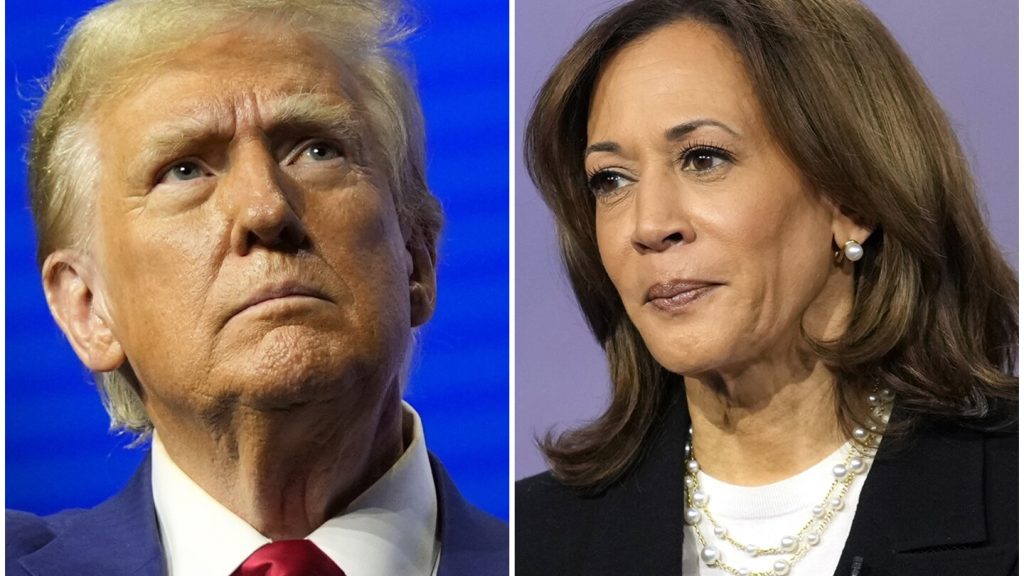As the 2024 presidential campaign enters its final full week, the competition between Democrat Kamala Harris and Republican Donald Trump is heating up. There is uncertainty about who will emerge victorious, and the events of the coming days will play a pivotal role in determining the outcome. Trump’s campaign has been marred by controversy, with his authoritarian-style rhetoric causing concern among Democrats. Despite ongoing criminal investigations and previous convictions, voter opinions of Trump are deeply entrenched, making it challenging for Democrats to sway voters in the final stretch.
Harris and her team are working to project optimism and confidence as the election day draws near. Senior adviser Jen O’Malley Dillon expressed certainty in their victory and highlighted the extraordinary enthusiasm for the campaign. Harris is expected to deliver a closing argument focused on the danger Trump poses to U.S. democracy, labeling him as a fascist. While Harris aims to appeal to moderate Republicans uncomfortable with Trump’s divisive leadership, there are concerns among progressive Democrats that she may not be emphasizing economic issues enough in the campaign’s closing days.
One of the key factors to watch in the final week is the candidates’ travel schedules, which will indicate the battleground states that will play a crucial role in determining the election outcome. Harris and Trump are aggressively competing in seven swing states, including Michigan, Pennsylvania, Wisconsin, Arizona, Georgia, Nevada, and North Carolina. Harris is focusing her efforts on critical states like Pennsylvania and Michigan, aiming to secure the support of undecided voters. Meanwhile, Trump continues to host rallies in key battleground states, adjusting his schedule based on campaign intelligence and ground feedback.
The early voting surge has been a significant factor in the 2024 election, with more than 41 million votes cast nationwide. While Democrats traditionally have an advantage in early voting, Republicans have been participating at higher rates in the current election cycle. Trump’s shift in encouraging early voting has impacted the turnout, breaking records in swing states like Georgia and North Carolina. However, the Democratic Party hopes to counter the Republican momentum in early voting as the election day approaches.
Trump’s persistent warnings about election rigging and fraud have added tension to an already contentious election season. Despite lack of evidence to support his claims, Trump continues to sow doubt about the integrity of the electoral process. Both parties are preparing for potential legal battles post-election, with the Republican National Committee investing in an election integrity watchdog operation. Democrats are concerned that this effort could lead to harassment of election workers and undermine trust in the voting process, further intensifying the already heated political climate.
The escalation of conflicts in the Middle East adds another layer of complexity to the 2024 election, as foreign affairs rarely determine the outcome of U.S. presidential races. Harris faces challenges in navigating the Middle East conflicts, balancing support for Israel with empathy for Palestinians affected by the violence. The ongoing wars in the region could impact the election if the conflict escalates or stabilizes in the coming days. As the final week unfolds, these factors will shape the narrative of the 2024 presidential campaign and influence the voters’ decision on Election Day.


